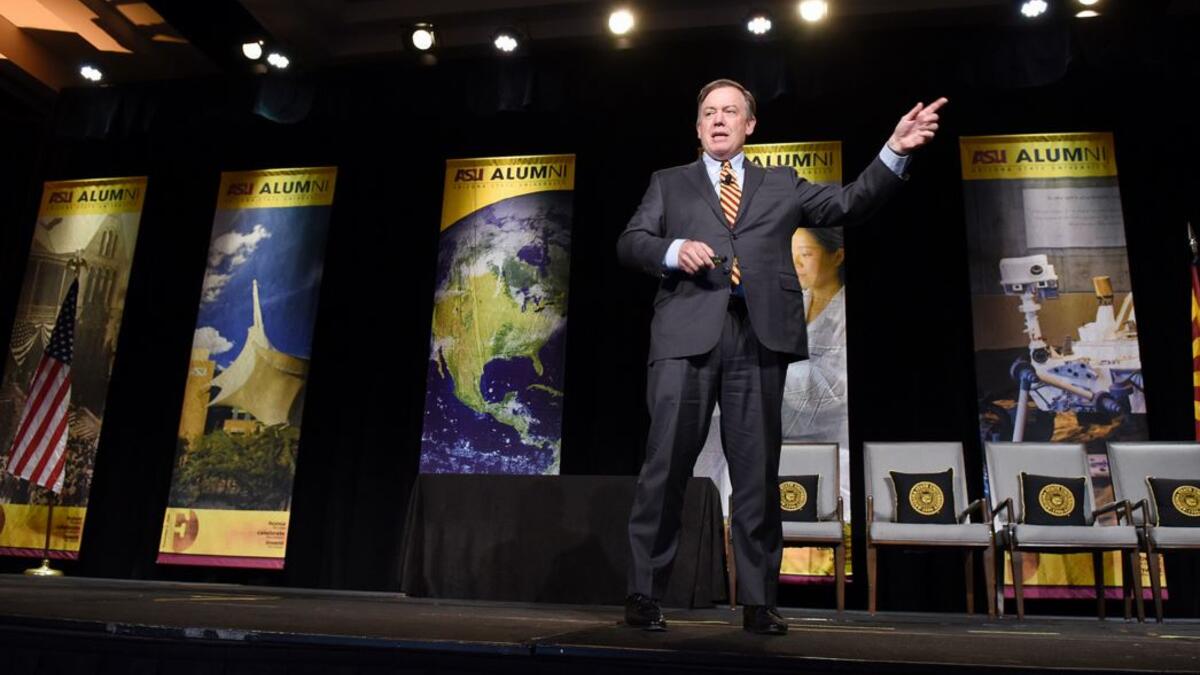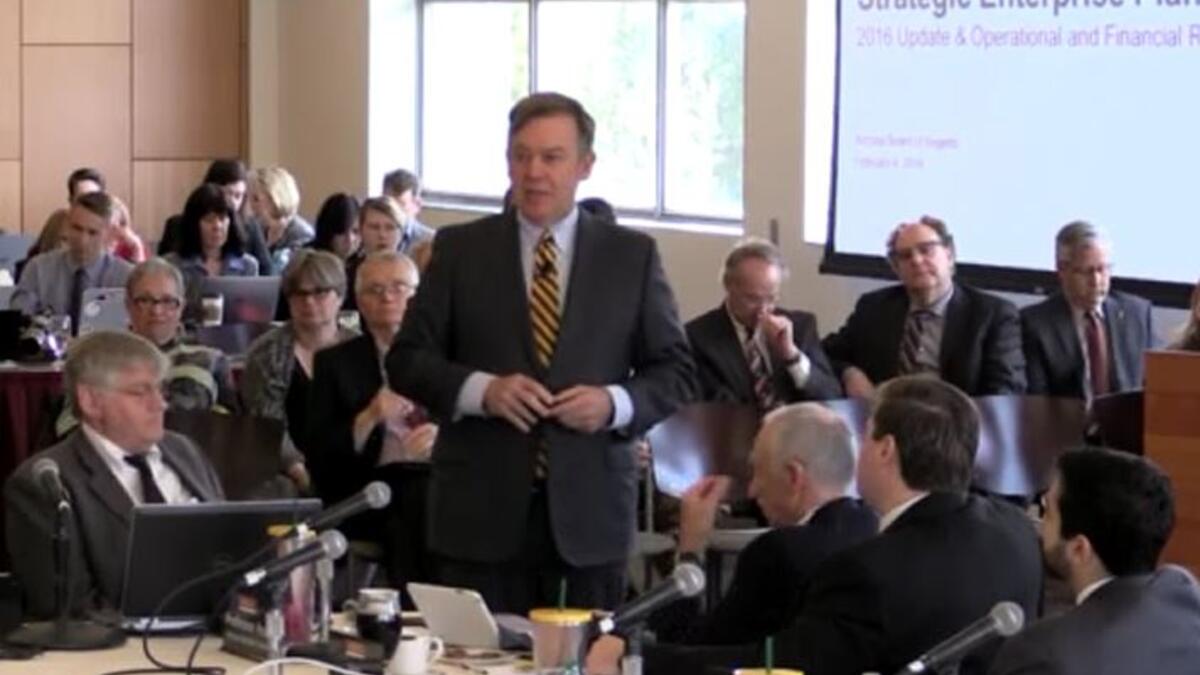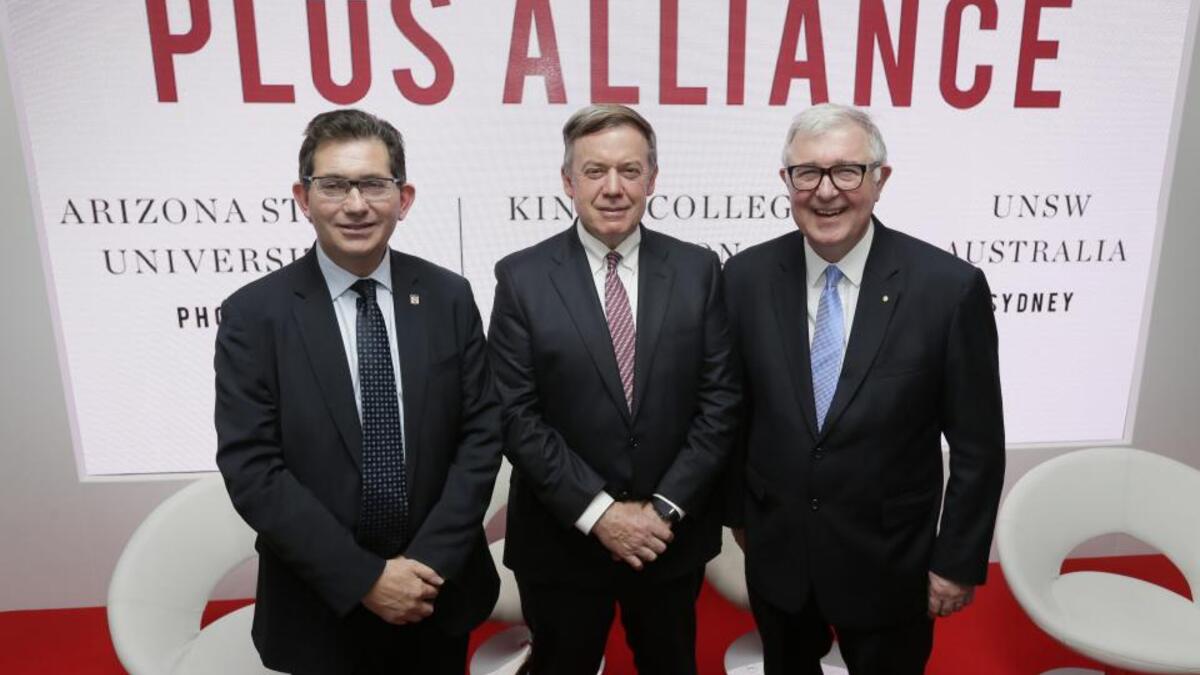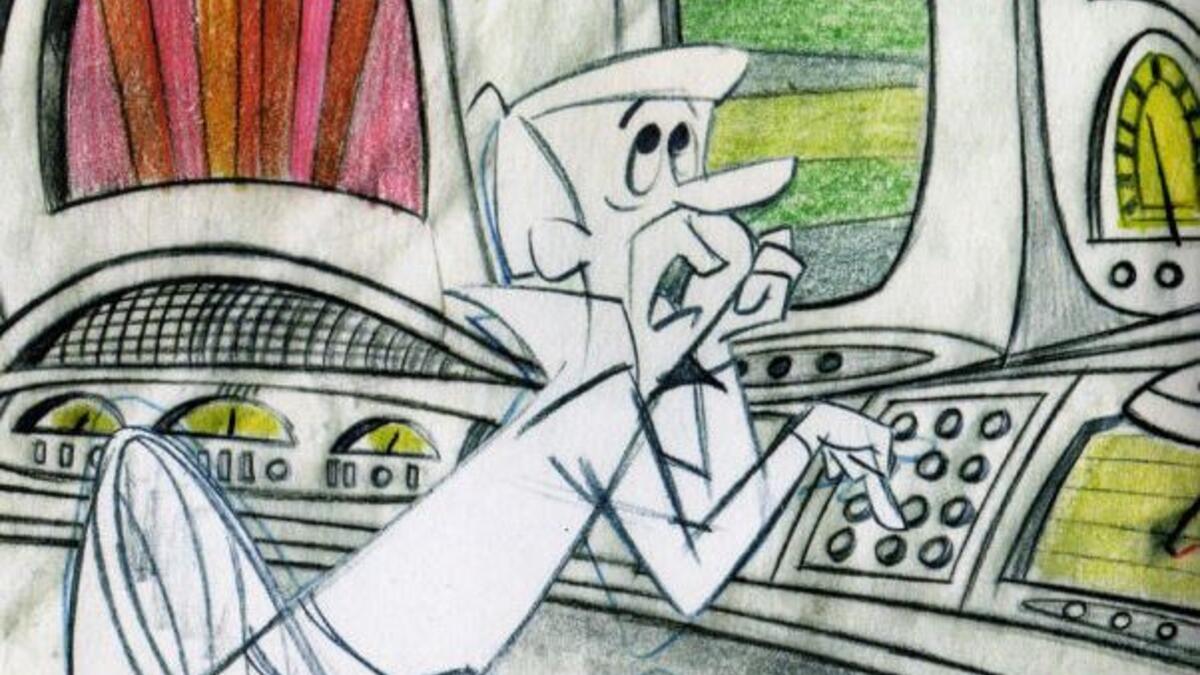
Updates from the President
Updates from President Crow: February 19, 2016
- Issuing a Founders' Day Challenge: Educational Attainment for All
- ASU Strategic Plan Update: Where Have We Been and Where Should We Be Going?
- PLuS Alliance Launch: Building a Better Tomorrow By Working Together Today
- Will a Computer Do Your Job in the Future?

ASU President Michael Crow speaks at Founders' Day 2016.
Issuing a Founders' Day challenge: Educational attainment for all
February 3rd marked the 130th anniversary of the founding of Arizona State University and provided an important opportunity to recognize the alumni, faculty and university supporters who have helped ASU to evolve into an exemplar New American University. Founders' Day honorees included a diverse array of amazing faculty, alumni and philanthropists , including Derrick Hall of the Arizona Diamondbacks, Dr. Charles Arntzen of the ASU Biodesign Institute, Courtney Klein of SEED SPOT, and Mike and Cindy Watts of Sunstate.
As part of the evening's program, I discussed the significance of ASU's origin, the complex challenges that lie ahead, and the higher education goals we need to set and achieve if we hope to advance a trajectory of success for our American democracy. For at our nation's founding, two of our forefathers named the expansion of knowledge and education as central pillars of an effective and prosperous democracy and that remains true today. We need an educated population then and we still need one now. The time has come to bring to fruition what John Adams and George Washington already knew.

ASU President Michael Crow presents the strategic plan to the Arizona Board of Regents on February 4, 2016.
ASU Strategic Plan Update: Where have we been and where should we be going?
Every year, Arizona's public universities present a comprehensive update of their institutional progress over the last year to the Arizona Board of Regents. On February 4, I hosted ABOR on the ASU Tempe campus to present our Strategic Enterprise Plan progress and discuss what work lies ahead. This year's hour-plus report highlighted university quality, innovation, partnerships, global engagement, and the complex metrics we are working toward. Four important challenges I think we need to think about going forward:
- How do we help our communities to recognize ASU as a critical component of the region's/state's future success and prosperity? (The way Stanford is viewed as important to metro San Francisco or the University of Washington is important to Seattle).
- How do we advance a thoughtful investment strategy that reflects positive engagement and allows Arizona to invest in the critical development of human capital?
- How do we help Arizona to become a leading, global center for large scale science and engineering (national science laboratories and research facilities)?
- How do we establish an educational attainment goal in order to address Arizona's educational underachievement and foster stability?
Video of my full presentation can be accessed using the link below and my accompanying slides are available here.

ASU President Michael Crow joins Edward Byrne, president of the University of New South Wales, and Ian Jacobs, president of Kings College London, to announced the launch of the PLuS Alliance in London.
PLuS Alliance Launch: Building a better tomorrow by working together today
In London on February 9, I had the pleasure of joining the presidents of Kings College London and the University of New South Wales for the launch of the PLuS Alliance, an international collaboration dedicated to solving society's most complex problems and expanding global access to quality higher education.
As the leaders of three higher learning institutions with shared interests in areas like sustainability and global health (among others), we are advancing a partnership that will allow us to combine the unique talents, ideas and specialties of our university communities to formulate new solutions and technologies while simultaneously working to shrink the global educational attainment gap.
Our self-funded alliance will seed fund large-scale projects with the aim of being self-supporting.
As I shared in my latest LinkedIn Pulse post, ASU is a knowledge enterprise that is committed to knowledge creation, innovation, global engagement and meaningful impact and we are proud to convene with KCL and UNSW to demonstrate what is possible if we choose to expand our horizons.

Will a computer do your job in the future?
A recent article from The Atlantic, "A World Without Work," speculates significant changes in the labor force - workers being replaced by computers and software and a growing population of nonworking, prime-age men (25-54) and underemployed youth - as indicators of that shift. A 2013 Oxford University study also estimates that about 47 percent of U.S. jobs are highly susceptible to computerization in the next two decades.
So what does this mean for Arizona State University?
First, it underscores the importance of ASU's teaching philosophy to create "master learners," individuals who are highly adaptive to and productive in changing economies and societies and are well-equipped to develop solutions to complex problems.
Second, it supports a new component of our role: taking responsibility to see that technology advances hand-in-hand with societal progress. Through our new School and Institute for the Future of Innovation in Society, ASU will examine how technology could and should evolve to help deliver a new generation of high-quality jobs that allow people to pursue productive, well-paying careers.
Third, this news highlights the value of a college degree. As the Oxford study points out, high-wage, high-skill jobs that typically require a college degree are the least susceptible to computerization. Degree holders, regardless of field of study, have the highest probability of adaptation.
Lastly, it affirms the importance of continuing to uphold our university charter.
- Arizona Board of Regents Enterprise Executive Committee: Put the Dream of Higher Education Within Reach of All Arizona Students
- ASU Connections Podcast: Who Is Michael Crow and Why Does He Love Space?
- W. P. Carey Report: The Economic Impact of Raising the Educational Attainment of Arizona's Workforce